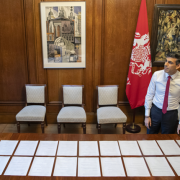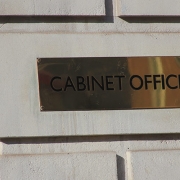Opportunity for all? Reaction to the latest Department for Education’s policy paper
Yesterday the Department for Education released the policy paper ‘Opportunity for all: strong schools with great teachers for your child’, the first Schools White Paper since 2016. The Education Secretary Nadhim Zahawi tied the paper to the Government’s levelling up strategy in his statement, calling it ‘levelling up in action’.
Mentions of standardising children’s experience of school was mentioned throughout the paper, particularly in relation to good teaching and the of school’s provision through the commitment to a minimum 32.5 hours a week. However, some stakeholders found the paper ‘lacking in ambition’ and ability to address schools funding problems, while others agreed reform was necessary as the current school system is ‘messy and confusing’.
Stakeholder reaction to key policies:
1) Academisation
As predicted by the sector, the white paper led with a commitment for all schools to belong to a Multi-Academy Trust or be in the process of joining one by 2030. The NEU stated the white paper is a ‘message that the education of the future will be a souped-up version of what we have seen over the last decade’ and that the ‘reliance on multi-academy trusts is simply not evidence-led.’ General Secretary Dr Mary Bousted also quoted last week’s public accounts committee report which suggested the existing system ‘lacked transparency and accountability’. Natalie Perera, Chief Executive of the Education Policy Institute, said that it was clear from their research ‘academisation is no “silver bullet” for improving school performance and there may simply not be enough capacity to absorb thousands of schools into higher performing MATs. The white paper does, however, allow local authorities to create their own trusts where provision is not suitably established, although the Green Party stated there is no evidence that academies raise standards overall.
2) English and Maths standards
‘Opportunity for All’ contained two commitments to standards of attainment. The parent pledge was a commitment from Government for 90% of primary school children to achieve the expected standards in Key Stage 2 reading, writing and maths by 2030. A second central ambition was to see the national average GCSE grade in both English language and maths increase from 4.5 to 5 by 2030. The Sutton Trust commented that ‘literacy and numeracy are the building blocks of a world class education, so the Government is right to make them the priority’. However, they also stated that this is a ‘tall order’ and that ‘it is extremely difficult for young people to catch up once they have fallen behind’. The Association of School and College Leaders commented that although improving English and maths is a laudable ambition, ‘there is little recognition of the wider societal factors which affect those outcomes’.
3) Mental Health Support
The Schools White Paper didn’t feature many new announcements for mental health support, which has been a key concern since the pandemic, but it did promise to accelerate the introduction of mental health support teams into schools. Several MPs, including Steve Brine, Neil Hudson and the Shadow Secretary for Education Bridget Phillipson, mentioned the issue, pointing to constituency issues like access to support services, following Nadhim Zahawi’s statement to the House.
4) Teacher recruitment and retention
The opportunity for all paper stated that at the heart if its ambitions is the need for an excellent teacher for every child. As well as restating the manifesto promise that teacher’s starting salaries would be raised to £30,000, the paper outlined an incentive to work in disadvantaged areas and specific incentives around maths, physics, chemistry, and computing teachers, in the beginning of their careers. However, the NASUWT stated this focus on retention was ironic given the profession ‘has seen their pay cut by 19% in real terms over the last 10 years’. Teach First welcomed the incentives but stated that it ‘remains unclear how schools – particularly those serving disadvantaged communities – can achieve those goals with the current level of financial support’.
5) Extending the school day
Extending the school day has been an ongoing conversation in Parliament since the pandemic and the white paper has in part addressed this by introducing a minimum expectation of 32.5 hours a week for mainstream state funded schools. Schools must meet this expectation by 2023 at the latest. Although this falls short of extending the school day, a passion project of Education Committee chair Robert Halfon, it should go some way to addressing inequality in educational offer, although it doesn’t apply to public schools or specialist provision.
In his response to the white paper, Halfon stated: ‘It is my hope that this will mean pupils up and down the country will have more time to catch up on their lost learning from the pandemic, and to also develop their skills’, in reference to the paper’s assertion that as ‘part of a richer school week, all children should be entitled to take part in sport, music and cultural opportunities’ as part of a ‘broad and ambitious curriculum. However, as noted by the Education Policy Institute, ‘the 32.5 hour school week, which amounts to a 9am – 3.30pm day, will not make much difference to most children. Moreover, Impetus commented that although they found variation in week length from school to school, there wasn’t much of a link between this and outcomes.
Vuelio’s weekly Friday morning political newsletter Point of Order shares insight and opinion to help public affairs, policy and comms professionals stay ahead of political change and connect with those who campaign on the issues they care about. To find out more or contribute, get in touch with Vuelio Politics.




















